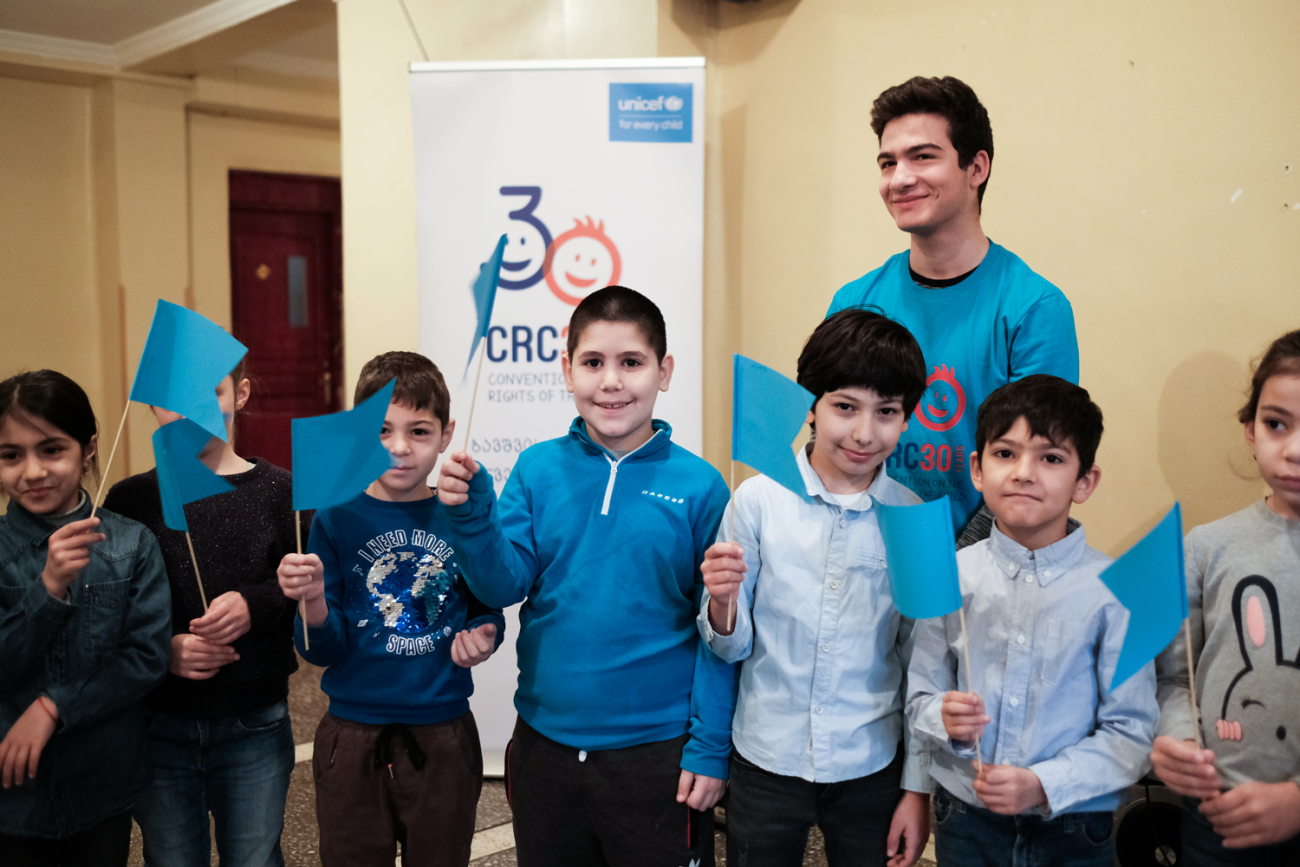The Georgian Parliament has adopted the Code of Rights of the Child, fulfilling the pledge the government made on the 30th anniversary of the Convention on the rights of the Child. The Code is a comprehensive legal document with the power to transform the lives of children in Georgia.
MP Sophio Kiladze described the Code as “a unified state policy document with specific effective mechanisms to ensure the well-being of children." MP Kiladze, the chair of the Human Rights and Civil Integration Committee at the Parliament of Georgia, led the development process of the Code during the three-year drafting process, in close collaboration with UNICEF and with support from the EU.
The Code is based on a key principle: All legislative and administrative procedures should be developed and implemented with the primary consideration given to the best interests of the child.
The Code defines best interests as “the interests of the child to well-being, safety, healthcare, education, development, social, moral and other interests which are given a priority by parents in accordance with this Code, the Constitution of Georgia, UN Convention on the Rights of the Child, its Optional Protocols and other international treaties as recognized by Georgia, assessing and considering the individual characteristics of the child and his/her views.”
The Code will guide how all state agencies, local government bodies, other administrative bodies and the Common Courts as well as public and private organizations work with and for children. In practice, that means that it provides legal guarantees that make it easier for children to independently exercise and protect their rights through child-friendly justice institutions and other mechanisms.
UNICEF provided technical assistance in the development of the Code and in organizing the consultations with young people. Ensuring a common position with the EU on key aspects of the Code in the last phases of its development expedited the finalization process and safeguarded the adherence to international standards.
“I congratulate children on this historic development,” said Dr. Ghassan Khalil, UNICEF Representative in Georgia. “The Code is a critical instrument to provide every right for every child. It embraces main principles that will guide the wellbeing of children for many years and will make significant changes in children’s lives,” he added.
UNICEF Regional Director for Europe and Central Asia, Afshan Khan, welcomed the positive news. “The adoption of the Code, and the stated commitment by Georgian authorities to implement it, represent a significant moment for children in the country,” she said. “That this happened as Georgia marks the 30th anniversary of the Convention on the Rights of the Child makes the milestone all the more meaningful.”
The Code will fundamentally change how Georgian law treats children. Noteworthy new mechanisms—such as the Standing Parliamentary Council for Protection of the Rights of the Child—will be introduced to ensure systematic and coordinated work during the process of establishing the state policy on the rights of the child, improving the legislation, budgeting and parliamentary monitoring.
The Code also envisages the creation of specific child rights protection and implementation mechanisms. For instance, it introduces a child-friendly justice system and creates a state system that ensures the welfare and safety of all children. The Code introduces family support programmes and completely bans corporal punishment in all settings. With its passing, the Code makes Georgia the 58th country in the world to completely prohibit corporal punishment.
The development of the Code was a very participatory process: local civil society groups, youth and children were invited to comment and advise on the Code.
Mariam Samsonidze, a Georgian student involved in the process, said she was happy that the country now has a Code that has unified all the “key points that are essential for child protection.” Now, she added, it is important to make sure the Code is fully implemented.
The Code passed with a vote of 85 to one on September 20, 2019 and will go into effect on June 1, 2020.



